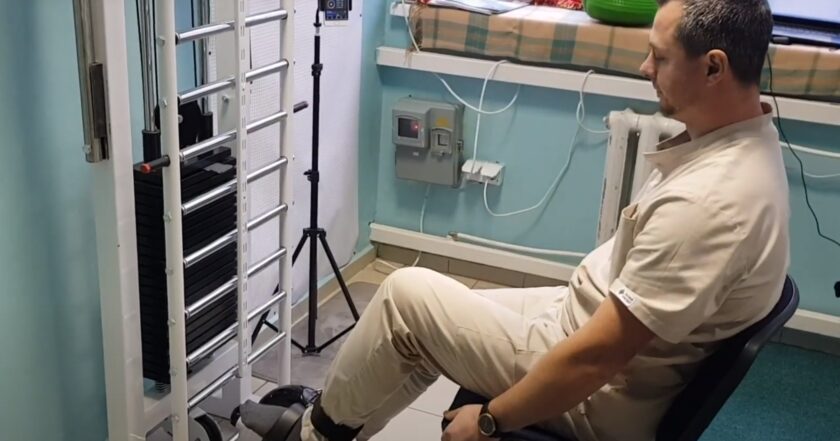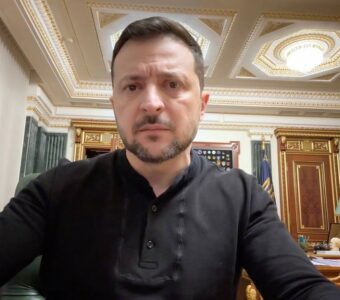Ukrainian student develops remote rehabilitation system

Photo: Screenshot from the video
A Ukrainian graduate student has developed a remote rehabilitation system.
This system allows a rehabilitation specialist to monitor breathing, pulse, and blood pressure remotely and adjust the training program in real time, Rubryka reports, referring to the KPI website.
What's the problem?
Every year, about 200,000 Ukrainian patients need quality medical rehabilitation, so Ukraine is developing a rehabilitation system based on medical institutions.
To ensure accessible services for adequate recovery, the Ministry of Health is building a rehabilitation system based on 228 cluster and super-cluster hospitals. The need is at least 7,800 rehabilitation beds, according to the department.
However, while these plans are in prospect, people need recovery now, considering the realities Ukrainians are living in. The demand for rehabilitation has increased significantly due to the war, and not everyone who needs rehabilitation can visit the appropriate medical facilities, which are still under construction.
What's the solution?
Oleksander Kryviakin, an Ihor Sikorsky Kyiv Polytechnic Institute graduate student, developed the remote rehabilitation system called "Osnova," meaning "Foundation" in Ukrainian.
Functionally, "Osnova" is a compact rehabilitation center with no analogs in Ukraine and is significantly cheaper than similar foreign systems, according to the developer.
"It costs less than a new iPhone," says the developer.
How does it work?
According to reports, a rehabilitation specialist can remotely monitor breathing, pulse, and blood pressure using smartwatches and video communication and adjust the training program in real time.
"With this system, you can conduct comprehensive physical rehabilitation for patients at home and even remotely monitor the rehabilitation process," said Kryviakin.
The device allows the comprehensive development of motor skills in children with cerebral palsy (CP), patients with post-stroke conditions, and individuals with spinal and brain injuries. The system can simultaneously monitor 6–8 patients.
The inventor explains that a stationary bike can be adjusted to the necessary height for working with the upper and lower limbs. Block weights can be used as a load for working with significant skeletal muscles and for weight compensation.
The system is suitable for both individual use at home and for the rehabilitation of several patients simultaneously.
"Even in paramedic points, 2–3 simulators can be installed. One rehabilitation specialist can work with small groups, controlling 6–8 patients," explained Kryviakin.
The aspirant and his team are working on their rehabilitation center at the university to enhance the system and contribute to the health recovery of Ukrainians.
In related news, students from Kyiv Polytechnic Institute in the mechanics and mechanical engineering laboratory are developing a domestic knee prosthesis.
Moreover, an aspirant from the Institute of Mechanics and Machine-Building of Ihor Sikorskyi Kyiv Polytechnic Institute, Svitlana Burburska, has developed an implant that grows together with bones.





















































